Moscow increases its influence in Africa.
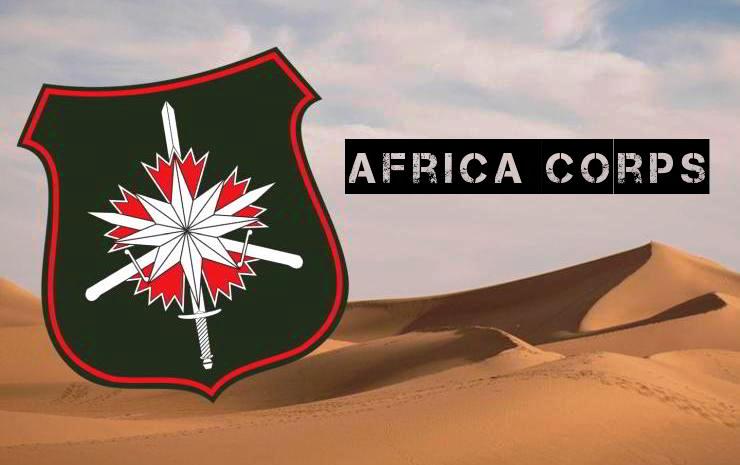
Despite the loss of its Syrian logistical hub, Russia is increasing its influence in Africa but it has suffered some serious setbacks in clashes with the jihadists in the Sahel.
Some observers anticipated that Russia’s ongoing war in Ukraine would divert critical military resources away from its African clients and mercenary operations on the continent, and that the fall of Bashar al-Assad in December, followed by the loss of its bases in Syria, would disrupt Moscow’s supply lines in Africa. However, eight months after the collapse of al-Assad’s regime, the Kremlin has not only maintained its influence but increased it.
The departure of Wagner from Mali, announced on 6 June after more than three and a half years of fighting jihadist groups, has resulted in an increased Russian military presence there. The Africa Corps, Russia’s state-controlled paramilitary force which replaced Wagner, announced on its Telegram channel that the Russian contingent would remain in Mali, despite Wagner claiming that its mission had been accomplished by bringing all regional capitals under the control of the Malian army and pushing out armed militants and killing their commanders.
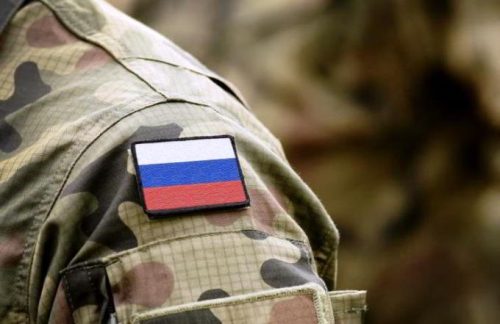
The Kremlin has tightened its grip on Russian military operations in Africa since Prigozhin’s death. 123rf
The Kremlin has exercised tighter control over Russian military operations in Africa since the death of Yevgeny Prigozhin, leader of the Wagner Group, in 2023. The Africa Corps is under the Russian Ministry of Defence’s direct command and is overseen by Gen. Andrey Averyanov, commander of Unit 29155 (one of the GRU’s branches). He has been targeted by EU sanctions since December 2024. About 70-80% of Africa Corps personnel are former Wagner fighters, according to Crisis Group expert Franklin Nossiter.
According to US military sources, there are currently around 2,000 mercenaries in Mali, a number set to rise. A Russian defence ministry-Mali agreement will deploy more Africa Corps fighters, according to the Control Risks consultancy.
However, the Konrad Adenauer Foundation reports a shift in style, with the Africa Corps likely to shift the focus from fighting alongside the Malian army to training, like in Niger and Burkina Faso.
The Africa Corps is acquiring more resources. Vessels targeted by European sanctions have been supplying weapons to the Sahel and the African Corps. A Russian-made SU-24 fighter-bomber was seen at an airbase near Bamako on 14 April 2025, as shown in a satellite image from Maxar Technologies. Western military experts say the aircraft was supplied to the Africa Corps. Since last January, 152 mm artillery guns, BTR-80 armoured troop carriers with radio-jamming equipment, Spartak armoured vehicles, tanker and transport trucks have also been delivered to the Malian army and the Africa Corps.
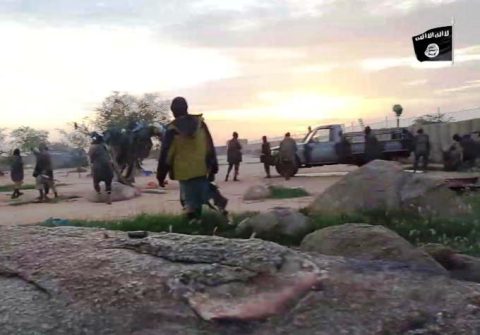
Jihadist group in the Sahel. CC BY-SA 4.0/aharan_kotogo
Since the beginning of the year, three convoys have been transported by sea from Russia to the port of Conakry, before reaching Mali by road. Satellite images identified the Russian vessel Baltic Leader which belongs to Russia’s 900 units shadow fleet which transports weapons, hydrocarbons and wheat to Russian partners across the globe. According to Radio France International, this ship was part of the so-called “Syrian Express” naval fleet between Russia and Syria targeted by NATO sanctions. These sanctions don’t work: Russian cargo ships have continued to dock in Conakry since the start of the year. Russia has found another ally in West Africa following the visit of Foreign Minister Sergey Lavrov to Conakry in June 2024. The Siyanie Severa also unloaded trucks in the port of Bata (Equatorial Guinea) on 29 May 2025. In April, a Russian Navy warship escorted these ships after they set off from Kaliningrad.But Russia’s increasing presence on the field has also negative consequences. One of them is the complaint last June by four Tuareg associations in Mali and Burkina Faso (Imouhagh International, Kel Akal, Diaspora of the United States, and the Azawad Solidarity Association) with the International Criminal Court against their nations’ armies and the Africa Corps which are accused of crimes against humanity and war crimes. Accordingly, since 2022, murders, arbitrary arrests, enforced disappearances, looting and torture, have been perpetrated against their community.
Malian military and Russian mercenaries killed over 500 civilians in Moura in March 2022, also claims the UN.
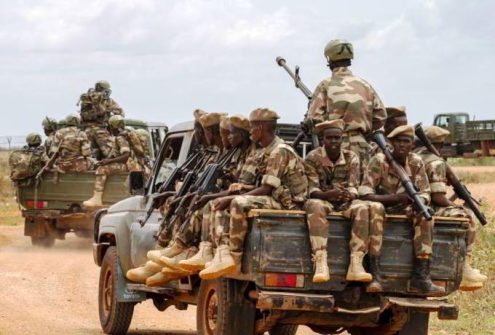
Nigerien soldiers from the capital of Niamey are moving to Agadez. Photo Richard Bumgardner/US Army
The efficiency of the Russian operations remains to be proven. One of the alleged justifications of the juntas’ leaders for expelling French troops was their incapacity to defeat the jihadists. But neither Wagner or the Africa Corps have obtained much better results. The Russian mercenaries suffered significant setbacks. During the summer 2024, a joint attack of Tuareg separatists and jihadists at Tin Zaouaten near the Algerian border caused an important defeat to the Malian Army and its Russian allies. The reclamation of the Kidal rebel stronghold, in Northern Mali in November 2023 did not put and end to insecurity. Less than a year later, jihadist attacks targeted Bamako, for the first time in nearly a decade. The situation is even more dangerous in Burkina Faso and Niger, where the Africa Corps’ presence remains insufficient to combat the worsening jihadist threat. After a meeting with the three foreign ministers of the Confederation of Sahel States in Moscow, last April, Foreign Minister, Sergey Lavrov announced Russia’s commitment to help the three governments to acquire more arms and train a 5,000-strong force. Reinforcements already begun by end March. According Western intelligence sources, during that month, a Russian Air Force Tupolev Tu-154M brought 37 Africa Corps soldiers and 200 Syrian ex-fighters of Bashar al-Assad’s army to the Agadez airbase in northern Niger.
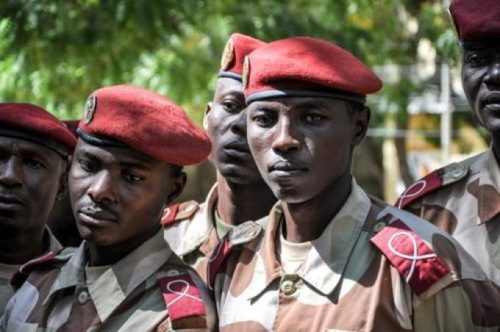
Young Chadian army soldiers. Shutterstock/yoh4nn
Despite these setbacks, Russia could still increase its influence in West Africa. The number of countries interested in military cooperation with Moscow is indeed growing. Togo, Sudan and Chad are considering establishing closer links with the Russia-backed Alliance of Sahel States (AES). Chadian and Togolese soldiers participated to joint military exercises in 2024 with the AES states, while Sudanese Armed Forces (SAF) leaders visited Mali and Niger last year. General al Burhan’s regime is another Russian ally. In February 2025, the Khartoum authorities and the Kremlin agreed to materialize a deal signed in 2017 for a Russian naval on the Red Sea in return for a Russian “unrestricted military aid” to the SAF. The Togolese foreign minister declared in 2025 that his country was “considering joining the AES” to strengthen regional cooperation and offer sea access to the landlocked countries. In January, 30 Russian military advisers were already in Lomé.
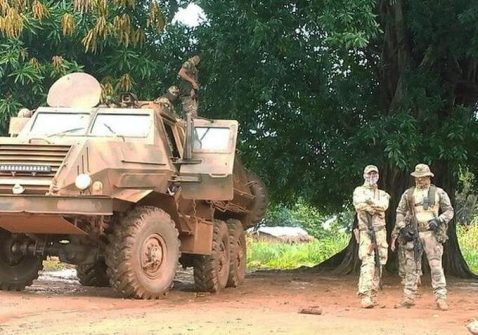
Russian mercenaries in the Central African Republic. CC BY-SA 4.0/CorbeauNews
Despite their setbacks, the relative success of Wagner and of the Africa Corps in stabilizing the Central African Republic regime during a rebel offensive in 2021 has increased Moscow’s appeal elsewhere on the continent as a viable security partner for fragile juntas. Meanwhile, Russia is maintaining a strong presence in Libya through its partnership with the Benghazi warlord, Marshall Khalifa Haftar. It is also strengthening military links with Algeria at the very moment, this country is embroiled in its worse post-independence crisis with France, following Emmanuel Macron’s recognition of Moroccan sovereignty over the Western Sahara. Last February, Algeria confirmed the purchase of several last generation US $ 50 million worth SU-57 stealth air-fighters, which are the rivals of the American F-35 and of the Chinese J-20 aircraft. (Open Photo: Emblem of the Russian Africa Corps. SpaceRefugee)
François Misser



